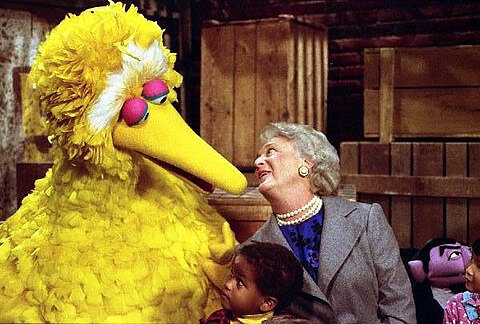Mississippi versus Big Bird and Friends
In the very last week of 2020, let’s look back at what Mississippi was up to exactly 50 years ago.
On April 17, 1970, the all-White Mississippi State Commission for Educational Television, appointed by the governor to evaluate programming that appeared on the state’s educational television stations, banned Sesame Street.
How did this happen, so soon after Sesame Street made its debut on national public television in fall 1969, following two years of meticulous research and testing? After all, Jim Henson, the creator of the Muppets featured on Sesame Street, had been born in Greenville, in the Mississippi Delta, and grew up in nearby Leland. Today we know, thanks to Kermit: The Swamp Years, that the frog who doesn’t find it easy being green grew up in Mississippi’s swamps; a plaque in Leland says so. Kermit, along with other native luminaries like Morgan Freeman, sits on the celebrity commission of the Mississippi Arts and Entertainment Experience, known as The MAX, in downtown Meridian.
Barbara Bush participates with Big Bird in a 1989 taping of the children's television show Sesame Street at United Studios. Wikipedia
Back in spring 1970, the commission’s vote to ban Sesame Street had been 3 to 2, and one of the dissenters leaked the decision to The New York Times. The Times’ source said the majority of the commissioners had been “very much opposed” to Sesame Street “because it uses a highly integrative cast of children,” as well as two adult actors who were Black. The majority vote felt that Mississippi was “not yet ready” for such a show.
Those commissioners were worried that Sesame Street would offend residents and Mississippi state legislators, some of whom had already argued against integrated television. State Rep. Tullius Brady of Brookhaven said that ETV exerted “a subtle influence” on the minds of children and that the Ford Foundation, which funded educational programming, could use its influence for “evil purposes.”
Because of The New York Times’ coverage, the ban made national news, and the commission heard from disapproving audiences nationwide who were shocked by such a blatant concession to racism. Variety named other states that had pre-empted Sesame Street: Alabama, Arkansas, Florida, Louisiana and Tennessee. In 1970, if you were upset, you marched, so Jackson children protested in front of Mississippi Public Broadcasting.
Joan Ganz Cooney, co-creator of Sesame Street and executive director of its producer, Children’s Television Workshop (now Sesame Workshop), called the Mississippi Commission’s decision “a tragedy for both the White and Black children” in the state. (Some who lived close to the state’s borders still could see it via feeds from Memphis, New Orleans and Alabama.) In a 1998 interview, Cooney recalled that by 1970 “I had become absolutely involved intellectually and spiritually with the civil rights movement and with the educational deficit that poverty created.”
The Delta Democrat-Times, a local newspaper in Henson’s home town of Greenville, put the case against the commission best, citing a study that found that children who had watched Sesame Street for six weeks made two and a half times more progress than children who had not. In an editorial entitled “No to Sesame Street,” the Delta Democrat-Times said,
“There is no state which more desperately needs every educational tool it can find than Mississippi. There is no educational show on the market today better prepared than Sesame Street to teach preschool children what many cannot or do not learn in their homes….The needs are immense.”
In the end, the Mississippi ban lasted a mere 22 days. In fall 1970, the Sesame Street cast appeared live in Jackson, in an event co-sponsored by the State Commission. But there never was a formal apology.
Children’s educational television actually went on to have a productive relationship with Mississippi. Chris Cerf is a prolific author and producer who has made many musical contributions to Sesame Street. Thanks to federal funds procured by then-Sen. Thad Cochran, R-Miss., Cerf was able to co-produce with Mississippi Public Broadcasting another award-winning educational series, Between the Lions, which promoted reading. By then, the state commission had dissolved.
In October 2019, the 50th anniversary of Sesame Street on the air, New York City renamed West 64th Street, where Sesame Workshop’s offices are located. Today the block between Broadway and Central Park West is named Sesame Street. If you visit New York City from Mississippi, do admire the new street sign, walk along Sesame Street and remember the tumultuous spring of 1970.
Ann Marie Cunningham is a Columbia University Lipman Fellow for 2020 who will be working with the Mississippi Center for investigative Reporting. She is a veteran journalist/producer and author of a best-seller. Her work has appeared in The New York Times, Los Angeles Times, Technology Review, The Nation and The New Republic. Contact her at amc@mississippicir.org.


